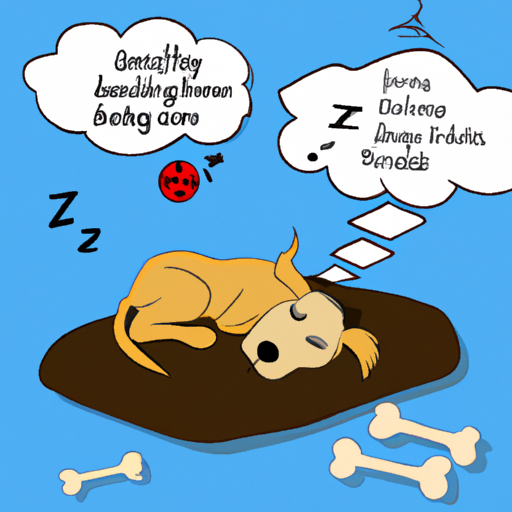1. The Science behind Sleep Twitching
Watching your beloved canine companion shake, twitch, or even bark in their sleep can be a disconcerting experience. But before you rush off to the vet in a state of panic, it’s crucial to understand the science behind these nighttime behaviors.
Dogs, like humans, experience different stages of sleep, including Rapid Eye Movement (REM) and non-REM stages. REM sleep is the phase where most of our vivid dreaming occurs, and it’s no different for our four-legged friends. During this stage, your dog’s brain activity spikes, leading to those cute but concerning twitches and shakes.
2. Deciphering Sleep Shakes
While sleep shakes in dogs are largely a normal part of their rest cycle, it’s important to know when it might be cause for concern.
- Normal Sleep Twitches: These typically involve the dog’s paws, tail, or facial muscles. You might also notice your dog making chewing movements or ‘running’ in their sleep.
- Possible Seizure Activity: If the shaking is violent, lasts for a long period, or involves the entire body, it might indicate a seizure. Other signs include loss of consciousness, drooling, or loss of bladder control. If you observe these signs, seek immediate veterinary attention.
3. Understanding the Role of Age and Breed
Your dog’s age and breed can also play a significant role in how much they twitch or shake in their sleep.
| Breed | Sleep Behavior |
|---|---|
| Large Breeds (e.g., Great Danes) | Often sleep more deeply and might twitch less |
| Small Breeds (e.g., Chihuahuas) | Might be more prone to noticeable twitching |
| Puppies and Older Dogs | Tend to sleep more and might exhibit more dream behavior |
4. Addressing Your Concerns
Having an understanding of why your dog shakes in their sleep can help put your mind at ease. However, if you’re still concerned about your pet’s nighttime behaviors, there are steps you can take.
- Keep a Sleep Journal: Log your dog’s sleep behaviors, noting frequency and intensity.
- Consult Your Vet: If you notice a sudden change or if the shaking becomes intense or prolonged, schedule an appointment with your vet.
5. FAQs
Q: Is it normal for dogs to shake in their sleep?
A: Yes, it’s usually normal and is often a sign that your dog is dreaming.
Q: Should I wake my dog if they’re shaking in their sleep?
A: Generally, it’s best not to disturb your dog’s sleep. However, if the shaking is intense or prolonged, it might be a good idea to gently wake them.
Q: Can dogs have nightmares?
A: While we can’t be sure what dogs dream about, they do exhibit REM sleep behavior, which is when dreams occur in humans.
Q: What should I do if I think my dog is having a seizure?
A: If you suspect your dog is having a seizure, seek immediate veterinary attention.
In conclusion, while it’s natural to worry when you see your dog shaking in their sleep, in most cases, it’s a completely normal part of their sleep cycle. However, always trust your instincts as a caregiver. If something doesn’t feel right, it’s best to consult with a professional.



